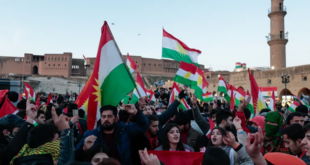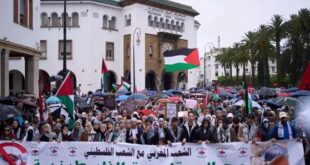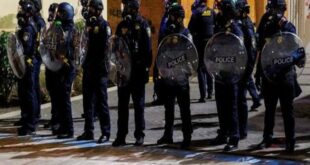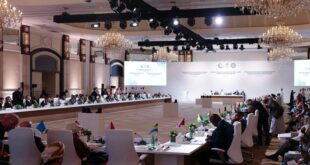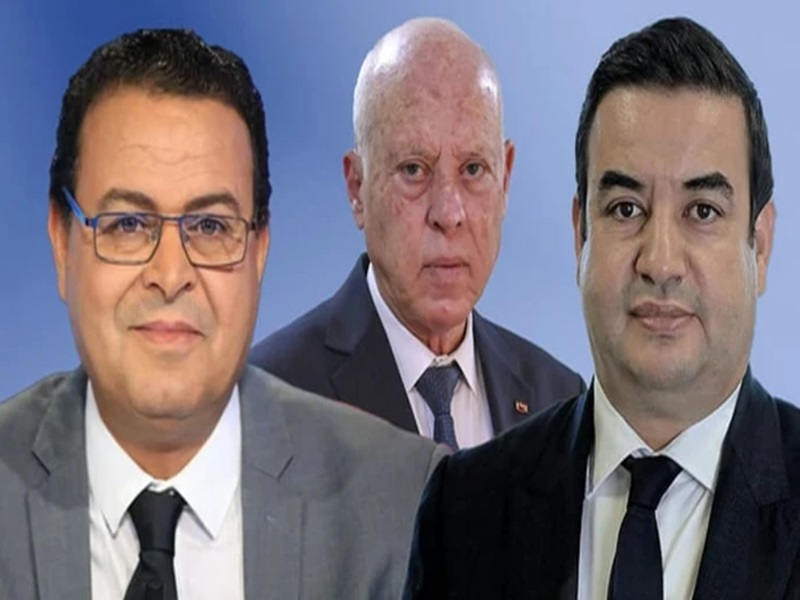
Ahead of Tunisia’s presidential election scheduled for October 6, many Tunisians are taking stock of the past five years under the presidency of Kais Saied. The country remains divided between his long-term supporters, and opponents who say the regime is repressive. Our reporters Lilia Blaise and Hamdi Tlili went to meet voters on both sides of the political divide, from Tunis to Paris.
Tunisia will hold a presidential election on Sunday against the backdrop of a crackdown on dissent and human rights violations committed against undocumented migrants seeking to cross the Mediterranean to Europe.
The incumbent, Kais Saied, whose most prominent critics are behind bars, is expected to sail to an easy win after a campaign with few rallies and public debates, marking a significant step back for a country that long prided itself as the birthplace of the Arab spring uprisings of 2011.
Only 11% of the electorate of 9 million voted in December’s local elections. Similarly low voter turnout this weekend would provide a hint of disapproval with Saied’s tenure so far.
Observers say Saied, who has been in office since 2019, has increasingly bent the country’s institutions to his will.
Last year, he ordered a crackdown on undocumented black migrants that drew criticism from around the world, but the EU nevertheless proceeded with a €105m deal with Tunisia to stem irregular migration.
The deal has helped fund security units that, according to a recent Guardian investigation, have been perpetrating widespread sexual violence against women on migration routes in its territory.
In the run-up to the election, the Independent High Authority for Elections (ISIE) whittled down an initial longlist of 17 presidential candidates to three after a raft of controversial disqualifications. Of the remaining trio, the former lawmaker Ayachi Zammel was jailed this week for reportedly falsifying documents. It is unclear if his candidature remains valid despite his detention.
Bassam Khawaja, a deputy director for Middle East and north Africa at Human Rights Watch, said: “Since the start of the electoral period on 14 July, authorities have prosecuted, convicted, or detained at least nine prospective candidates.”
Late in September, Tunisia’s parliament voted with an overwhelming majority to strip the courts of the power to reverse decisions made by its electoral body. The vote followed a row between the ISIE and a court that overturned the former’s disqualification of three presidential contenders.
The latest development has made Saied, who will lead for another five years if victorious on Sunday, near unstoppable.
Sarah Yerkes, a senior fellow in the Middle East programme at the Washington-based thinktank Carnegie Endowment for International Peace, said the election would “almost certainly be a low point in the trajectory of what was once the sole democracy in the Arab world”.
After the Arab spring protests ousted the longstanding ruler Ben Ali in 2011, Tunisia was hailed as one of the region’s brightest democratic lights, a reputation boosted by back-to-back elections.
Saied stood as an independent candidate and establishment outsider in the previous election in 2019, campaigning on a platform of strong government after nearly a decade of deadlock between Islamist and secular blocs since the 2011 revolution. The political outsider won by a landslide, with 73% of the vote in a second round runoff with turnout of 58%.
In 2021, he suspended the opposition-controlled parliament and fired the prime minister. The following year, a referendum changed the constitution and gave Saied sweeping powers in a newly introduced unitary system of government. He apportioned to himself the power to appoint magistrates and the seven ISIE members by presidential decree – and fire them at will.
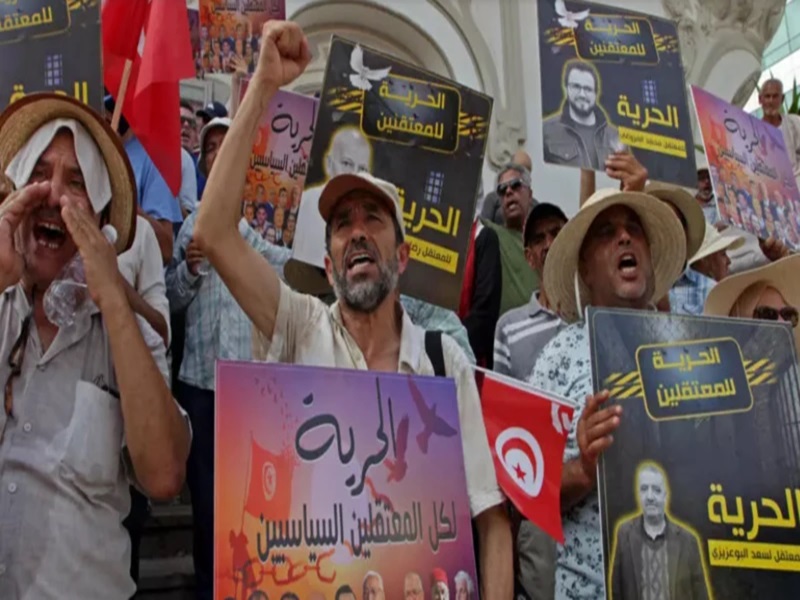
More than a dozen leaders of the leading opposition party, Ennahda, including the former MP Said Ferjani, who was also imprisoned under Ali, were detained. Many remain in captivity.
Khawaja said: “Holding elections amid such repression makes a mockery of Tunisians’ right to participate in free and fair elections.”
Saied’s pursuit of an authoritarian agenda has coincided with downturn in Tunisia’s economic fortunes. Unemployment has risen and inflation is in double digits. According to the World Bank, the country’s economic recovery from years of a cost-of-living crisis and a recession in 2023 has slowed.
Throughout his tenure, Saied has accused civil society and opposition groups critical of his governance of having nefarious motives and being puppets of foreign countries. That line of thinking was echoed by the lawmakers in September, as some even outside the ruling party accused judges of acting on behalf of unnamed foreign interests.
With the coast clear for his re-election, there are fears of more democratic backsliding and populist propaganda efforts in the years to come.
Yerkes said: “By manipulating the 2024 presidential election, Saied has put one more nail in the coffin of Tunisia’s democratic transition and ensured the outcome well before the process began.”
World Opinions + Agencies




 World Opinion | Alternative Média زوايا ميادين | صوت من لا صوت له Débats De Société, Questions, Opinions et Tribunes.. La Voix Des Sans-Voix | Alternative Média
World Opinion | Alternative Média زوايا ميادين | صوت من لا صوت له Débats De Société, Questions, Opinions et Tribunes.. La Voix Des Sans-Voix | Alternative Média

